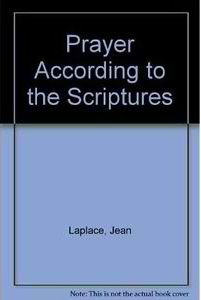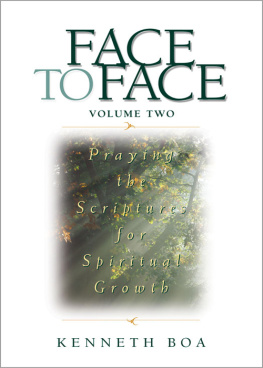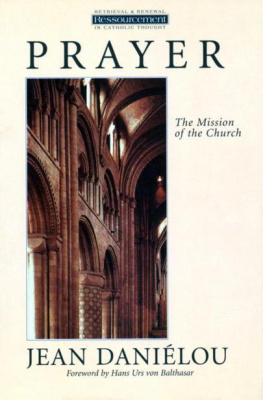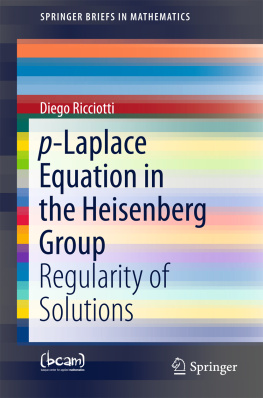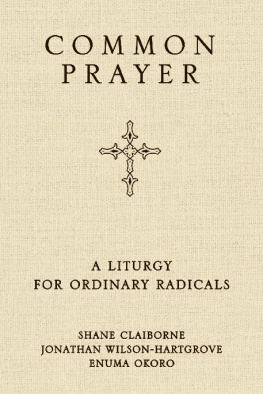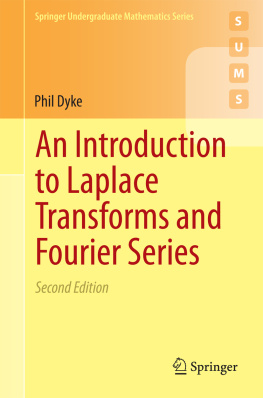Jean Laplace - Prayer According to the Scriptures
Here you can read online Jean Laplace - Prayer According to the Scriptures full text of the book (entire story) in english for free. Download pdf and epub, get meaning, cover and reviews about this ebook. year: 0, genre: Religion. Description of the work, (preface) as well as reviews are available. Best literature library LitArk.com created for fans of good reading and offers a wide selection of genres:
Romance novel
Science fiction
Adventure
Detective
Science
History
Home and family
Prose
Art
Politics
Computer
Non-fiction
Religion
Business
Children
Humor
Choose a favorite category and find really read worthwhile books. Enjoy immersion in the world of imagination, feel the emotions of the characters or learn something new for yourself, make an fascinating discovery.
- Book:Prayer According to the Scriptures
- Author:
- Genre:
- Year:0
- Rating:3 / 5
- Favourites:Add to favourites
- Your mark:
- 60
- 1
- 2
- 3
- 4
- 5
Prayer According to the Scriptures: summary, description and annotation
We offer to read an annotation, description, summary or preface (depends on what the author of the book "Prayer According to the Scriptures" wrote himself). If you haven't found the necessary information about the book — write in the comments, we will try to find it.
Prayer According to the Scriptures — read online for free the complete book (whole text) full work
Below is the text of the book, divided by pages. System saving the place of the last page read, allows you to conveniently read the book "Prayer According to the Scriptures" online for free, without having to search again every time where you left off. Put a bookmark, and you can go to the page where you finished reading at any time.
Font size:
Interval:
Bookmark:
PRAYER
According to the Scriptures
Jean Laplace, SJ
Translatedby Mary Louise Powell, rc
VERITAS
Published 1991 by Veritas Publications 7-8 Lower Abbey StreetDublin 1
First published in English translation by
Religious of the Cenacle
200 Lake Street
Massachusetts 02135
USA
This edition copyright Veritas Publications 1991
ISBN 1 85390 1679
CONTENTS
PRAYER ACCORDING TO THE SCRIPTURES
TheScriptures: a book of prayer
In religious life today scripture is finding anewthe place that belongs to it. Most novices now have their pocket bible alongsidetheir rule book. This does not mean we have no progress to make. There could bean element of passing fad in this renewed interest. Apart from that, you cannotsimply hand out bibles and expect everyone to find spiritual nourishmentautomatically. Perhaps this is possible if most people stay with the Gospels.St Paul is a little more difficult. But what can someone opening the Bible atthe first page glean from the stories of the Patriarchs, or even the account ofthe Exodus? More difficult would be the description of the Sanctuary or theLevitical ceremonial. Any verse of the Imitation ora chapter from Father Voillaume would be easier to understand.
Well, then, do we put off the useof the Bible until later, or reserve it as a luxury for prepared and culturedminds? If we were do do either, we should be depriving ourselves of itstreasures. The Bible should be a book of spirituality for us and as such shouldplay a role in our formation. In order that it may do this, we must learn howto use it. While we have today many fine introductions and numerouscommentaries, it is still hard to find a book which, recognising the progressof exegesis, uses it as a help to savour the text more fully and to drawspiritual profit from it. We have not recovered the inspiration of the firstChristian ages which sought God through the Bible itself, and found in itspages the ascetical teaching they needed.
This book is an attempt to do justthat. Its subject is prayer, and we are asking the Bible to give us a model anda teaching on this topic. After turning our attention to the heart, which isthe place of prayer, we shall describe the paths through which the Scriptureslead the believer in the attainment of the reality: he enters into himself andadmits his sinfulness; then he cries out to God to be transformed; thusdisposed, he remembers - which is the material for his meditation - and then,under the effect of this remembering, he feels desire aroused in himself.Finally, he attains the end of prayer: docility to God and receptivity to themotion of the Spirit.
Some comments on the advantages of entering theschool of scripture in this way are helpful as an introduction before wedescribe the heart's ascent in its search for God. It would be naive and falseto imagine that the Bible renders the traditional ascetical teachings useless -any more than it causes us to ignore the spiritual writers of various ages, orto set the Bible up in opposition to theological effort which finds itsprinciples and rule in Scripture itself. But when we have become steeped inScripture, we find it easier to recognise the masters of the spiritual life andeliminate the mediocre. The one point that holds our attention, however, isthat Scripture gives to all religious training, no matter what 'school' itclaims to follow, a balance and rightness sought in vain elsewhere. We shallsee this by considering the relish, realism and unity which those who arefaithful to its lessons attain in the spiritual life.
Relishand taste for God
We can ascertain the accuracy of these remarks byexamining the way Scripture educates us in the area of feelings. It is a factthat in the realm of prayer many distrust any manifestation of feelings. Is itthe fault of their early formation or misunderstanding of the words of certainsaints? Such persons always believe it dangerous, or at least imperfect, togrant the feelings any place in the spiritual life. They make their dryness ordifficulty in praying into a trail borne with courage, when it would be morehelpful to look for the causes and remedy the situation. The dryness thisattitude sustains in us is only the least of evils. It often leads topsychological deviations of which the person is unaware, which make thosearound him suffer and damage the effectiveness of the apostolate. We think itis possible to live and turn up our noses at our sensibility, and as a resultour psychology is warped and all truly spontaneous gestures are eliminated fromour conduct.
According to the Scriptures, ahuman being cannot downgrade feelings in his relationship with God. Prayer isnot an act of mere fidelity. 'I got in my spiritual exercises', a religiousoften says, as though the satisfaction of having fulfilled an obligation were aconsolation for not feeling anything in doing it. True, the scripture does askus to be exact in the schedule set up for our times of prayer: 'I arose severaltimes, day and night, to sing your praise ...' But this is the fidelity of alover's rendezvous. No one calculates the time spent to the last second. Hesatisfies the needs of the heart. 'My soul thirsts for the living God. Whenshall I see him face to face?' (Ps 42)
Unless these words are saidthoughtlessly, out of routine, they presuppose that the one who says themdashes toward God with all the strength of his passions: 'My heart and my fleshcry out for thee, O living God.' The heart speaks to God; that is to say, themost intimate region of my being which makes me myself. But the heart is notsatisfied until it communicates its joy to every part of me that can feel it:'My heart and my flesh ...'. It is as though the feeling for God which catcheshold of us is authentic only when transmitted to the least fibre of our being.
For this reason the vocabularythat comes naturally to us in speaking of prayer is that of passion, desire andfeeling. When we meditate on sin or are conscious of the taint that is in us,our features are drawn, we lose sleep, we shed tears and utter sighs. On theother hand, when we feel God's love and protection, a shiver of joy runsthrough our flesh. We savour the commandments that are our covenant with God,delight in them as in exquisite honey. It is in our flesh that we feel the fearwhich sometimes comes over us in the face of God's anger or omnipotence. 'Myflesh shudders before thee; I fear thy decrees.' The vocabulary through whichGod expressed his love for Israel is the very same as that used betweenbridegroom and bride: peace in a love willingly received, or violence in theface of love deceived.
It is not up to a person to arousethese feelings at will. They are the work of grace. But at least in theabandonment or dryness we feel, we can always cry out: 'How long will you hideyour face from us, Lord? ... Do not abandon us to the hardness of our hearts... Deliver me from hidden evil... Do not let us be delivered into the hands ofour enemies ... Give us back the sound of joy and feasting.' This is theweakness of one who finds he can do nothing when God hides himself. If God doesnot communicate his love and joy to our flesh, we know only too well that weshall look elsewhere for pleasures that bring us fulfilment. 'God of my heart,save me, I wander like a lost sheep. I sigh for you.'
To be bored or in a state oflifeless fidelity before God is not normal. The state will not endure, or if itdoes, it becomes the pride of the pharisee. The heart that feels arid and longsfor refreshing waters - the distracted heart - asks to be recollected oncemore. A person in this state does not take the blame for it, nor is hesatisfied with it because he has done his part through his spiritual efforts.He wants to reap spiritual fruit, the work of grace, but he must ask for it. Asa person without an appetite consults the doctor even though he does not feelsick, so the person whose heart is cold begs to have fervour enkindled, andthis pleading is itself his prayer.
Next pageFont size:
Interval:
Bookmark:
Similar books «Prayer According to the Scriptures»
Look at similar books to Prayer According to the Scriptures. We have selected literature similar in name and meaning in the hope of providing readers with more options to find new, interesting, not yet read works.
Discussion, reviews of the book Prayer According to the Scriptures and just readers' own opinions. Leave your comments, write what you think about the work, its meaning or the main characters. Specify what exactly you liked and what you didn't like, and why you think so.

